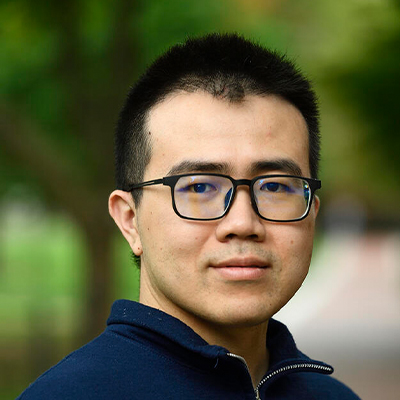
Dingchang Lin
Dingchang Lin is an assistant professor of materials science and engineering and is actively recruiting postdocs and PhD students. His research group develops biomolecules, materials and electronic devices for probing and modulation in biological systems, especially the central nervous system. These tools will allow new possibilities in basic science and/or provide translatable solutions for clinical applications. The Lin Lab is well funded by NIH NIGMS, JHU start-up fund, Discovery Award, and several other grants and awards.
The Lin lab’s current research is focused on addressing several major technological gaps in cell biology, neuroscience, and materials science via protein engineering, novel materials design and synthesis, and device engineering. Specifically, he is developing materials across scales (from molecular to device-level) that can seamlessly interface with living systems, adapt, and respond to internal physiological changes and external physical stimuli, and thus enable cell probing and modulation with (sub)cellular-level resolution, multiplexity, and cell-type specificity.
Lin received his bachelor’s degree in materials science and engineering from Tsinghua University in China in 2013, and completed his PhD in materials science and engineering at Stanford University in 2018. He received his postdoctoral training in chemistry and chemical biology at Harvard University. Lin is a member of Materials Research Society, Biomedical Engineering Society, and Society for Neuroscience, and has received awards, including the NIH NIGMS MIRA Award (2022), the Harvard Brain Institute Young Scientist Transitions Award (2021), MRS Graduate Student Award (2018), and Ross N. Tucker Memorial Award (2017). He Lin has been recognized as the Web of Science (Clarivate) Highly Cited Researcher since 2019.


